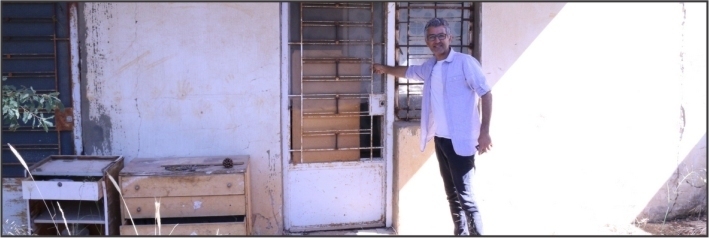The Boys of Beirut

“Having been a teenage boy myself, I know how important it is to have a good friend who can be a mentor, a big brother, someone who you want to spend time with, who you feel you love. I had someone like that in my life who helped me during that period of life. I want to be that person to those kids. It’s as simple as that,” shares Karim Anayssi.
Karim and his wife Rita serve as Fellowship International missionaries overseeing the Cedar Home ministry in Lebanon. For 72 years now, the Cedar Home girl’s home has brought hope, healing, and a future to abandoned, orphaned, and disadvantaged girls in Lebanon. As a couple they both sense that the time has come to expand that same care to teenage boys.
Many times throughout the past year, as Karim would drive through his neighbourhood in Beirut, he would see Mohamed, a teenage boy, standing next to the community garbage bins. As people would drop off their garbage and recycling, he would sort through each bag looking for anything of value. He told Karim that this is the “job” given to him by his dad – sorting through garbage to help provide for the family. He was no longer in school, he wasn’t learning any valuable skills, he was not being prepared to thrive once he is an adult; this is all he could do. In Lebanon, this situation is all too common.
According to a report issued by the UN, in 2021 about 82% of households in Lebanon now live under multi-dimensional poverty when considering dimensions such as employment and income, access to healthcare, education, public utilities and housing. With extreme levels of inflation and high unemployment rates, families who used to be able to save and plan for their future now struggle to find enough food to eat each day. This has left young boys and teenagers in a precarious position. According to Karim, most Lebanese families rely on private education for their children because they don’t trust the public education system. But because families can no longer pay for private education, boys are being obligated to find whatever work they can to help feed their families. The need for hope and a future for these boys and their families is significant.
Of the hundreds of thousands of boys who are in need, Karim and Rita want to do their part. They already have the vision, the organizational and people knowledge, mentors and staff, the property, the foundations of a strong building and reputation in the community, and so now is the time to start. Once the building and staff are ready, they plan to train 100 teenage boys each year. As Karim would say, “I see these boys as the church of the future. We are not only doing vocational training, providing meals, and sharing the gospel, we see this as church planting, as heart work.”
FAIR is seeking to raise $150,000 through the Good Bones special appeal in order to help Karim’s dream come to life. Would you consider how God would have you partner with this exciting new ministry which will make a difference in young men?
